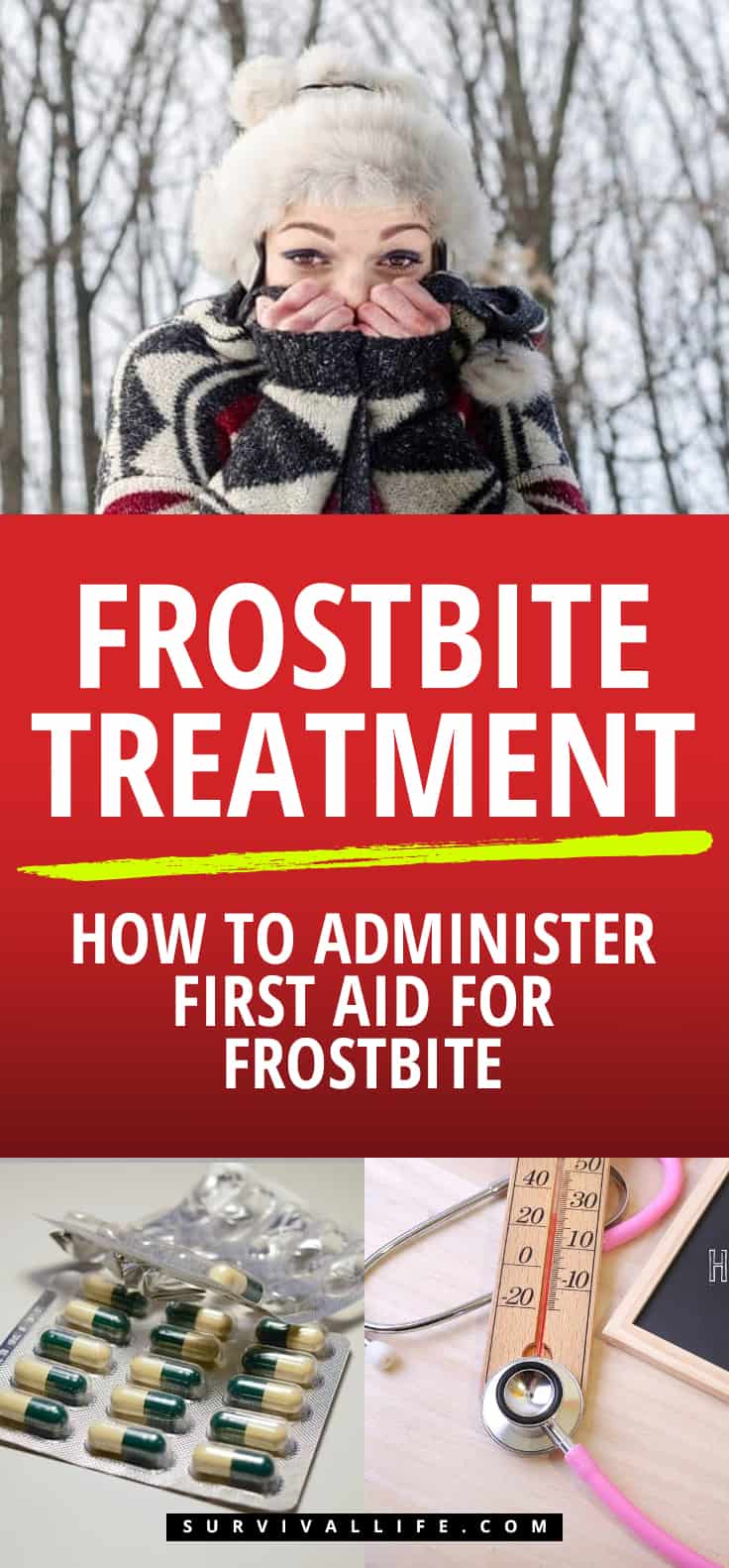Personal Safety
Frostbite Treatment | How To Administer First Aid For Frostbite

Frostbite is a condition that should be given an immediate medical attention but there are instances that help will take hours to reach you. Read on to find out more about frostbite treatment and how to apply first aid when you encounter this dangerous situation!
Frostbite Treatment | The Immediate Remedy
When you see a person’s body or skin is turning hard black or white or there is numbness, blisters and stiffness then that person is suffering from frostbite. It occurs when your skin is exposed to biting or freezing cold temperatures for a long period of time. This can cause severe damage to your skin tissues, nerves, and blood vessels. Seriously affected areas might require amputation. So you can see how dangerous it is to have frostbitten body parts and I am quite certain that none of us want to lose a body part. You need to seek immediate medical attention for extreme cases of frostbite. But we can administer frostbite treatment or apply first aid to mild frostbite or frostnip and prevent it from getting worse. Follow the steps below and be guided accordingly, we still prefer that you seek professional help if the situation permits.
Check And Protect

The first thing you need to do is to check if there are signs of hypothermia like extreme shivering, drowsiness, uncoordinated movements and slurred speech. Protect the person’s skin from further exposure to cold elements and remove wet clothing as soon as you’re indoors.
Warm Affected Areas
Gently submerge the affected area in warm water. Soak them for 15 to 30 minutes. Never re-warm the skin because warming then re-exposing it to cold air will just worsen the situation. And do not heat the affected area using direct heat such as heat lamp, stove, heating pad and over a fireplace. It will burn the skin and cause more damage.
Take Pain Reliever

If the pain is excruciating, you can take pain relievers like Advil, Aleve, and Mortin to reduce the pain. These medicines might not cure the frostbite entirely but it may help a lot in relieving the pain.
Never Walk On Frostbitten Feet
Never walk on frostbitten toes or feet unless it is completely necessary. It can damage the underlying tissue even more.
Use Bandage
Apply sterilize, dry dressings loosely and put cotton balls between each affected toes or fingers.
As The Skin Thaws
Once the skin turns red and there’s a tingling and burning sensation, it means normal blood flow is coming back but still, you need professional medical attention to be treated properly.
Watch this video for more information and first aid tips on how to treat frostbite!
Frostbite is a very serious condition that should be addressed immediately or else it can get out of hand and leave you losing a precious part of your body. If you’re a person who is always engaged in extreme cold outdoor activities then you need to prep up and suit up properly. And let us always keep in mind the old adage “prevention is better than cure” for it will surely remind us through proper preparation, awareness and the right knowledge, we can survive whatever survival circumstances this world might bring.

Do you have any tips for treating frostbite? Share in the comments below!
Now you know what to do with frostbites, it’s time to find out how to treat other cold-weather injuries!
Don’t forget to sign-up for our newsletter!
Follow us on Facebook, Instagram, Twitte
Disclaimer: All content on this site is for informational purposes only. Please read our full disclaimer here!
-

 Do It Yourself7 months ago
Do It Yourself7 months agoParacord Projects | 36 Cool Paracord Ideas For Your Paracord Survival Projects
-

 Do It Yourself9 months ago
Do It Yourself9 months agoHow To Make Paracord Survival Bracelets | DIY Survival Prepping
-

 Do It Yourself9 months ago
Do It Yourself9 months ago21 Home Remedies For Toothache Pain Relief
-

 Do It Yourself10 months ago
Do It Yourself10 months agoSurvival DIY: How To Melt Aluminum Cans For Casting
-

 Exports8 months ago
Exports8 months agoAre Switchblades Legal? Knife Laws By State


InklingBooks
February 26, 2017 at 10:20 AM
You might want to comment on advice I’ve heard. It says that if you’re in a wilderness area and help could be many hours or even days away, do NOT thaw out that frozen tissue. Almost all the harm has been done already. Once thawed, the person will be non-ambulatory—meaning they can no longer walk even a short distance. Thawed, the patient will need extensive painkillers as well as antiobiotics and frostbite tissue needs top-notch care.. The advice suggests that, if you can’t offer that, the tissue is best left frozen.
Also, those engaged in wilderness travel might want to do what the military often does in similar combat situations. Make checking extremities a regular part of the routine (i.e. every two hours) and designate partners who look after one another. Leave nothing to chance.
Whaledriver
March 11, 2017 at 4:23 PM
Your comment about not thawing a frozen extremity in the wilderness is very true.
Using warm water is not the best way of thawing a frost bitten extremity for a number of reasons, not the least if which is accelerating hypothermia: use hot water (105° F maximum) to quickly thaw the affected limb. 30 minutes prior to starting, give a pain medication if the patient can tolerate it. What I’ve done in cases of personally having hands and/or feet frozen was to take single doses of both Advil and Tylenol: I wouldn’t advise doing this for someone you don’t know well enough to know how they’d respond to both medications. If necessary, stagger the two medications by 2-4 hours. In this case, make notes on a toe tag attached to clothing for medical personnel to see.
Creme De La Jolla Cream
June 5, 2018 at 4:56 AM
I have read so many posts regarding the blogger lovers however this article is truly a good article, keep it up.
Pingback: Steps to Survive Anything | Basic Survival Knowledge | Survival Life
Pingback: 8 Steps to Survive Anything | Life Off The Grid
Deb
November 27, 2018 at 8:28 AM
You left out – DO NOT RUB!! I remember from my advanced first aid training and later EMT training that rubbing damages the tissue. Do not rub thinking you are getting the blood flowing again. The tissue is frozen and it will be damaged.